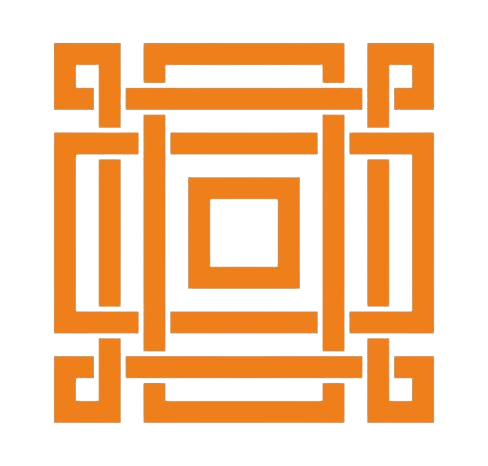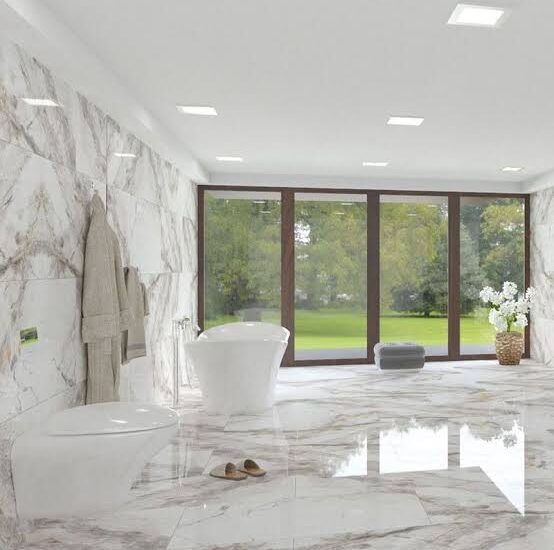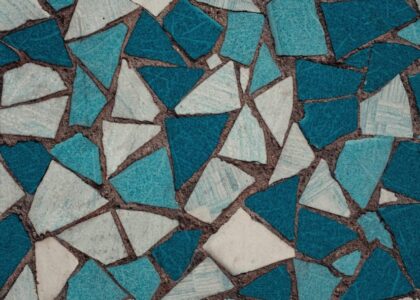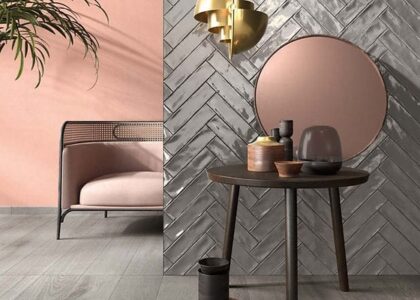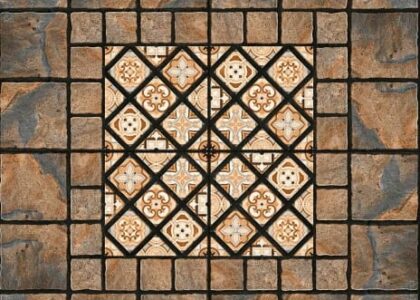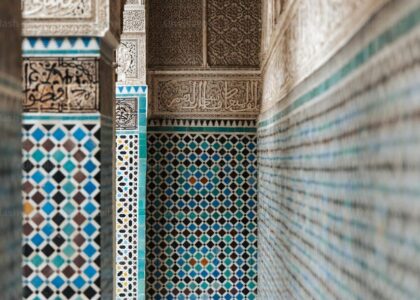History of product :
Porcelain tiles were first made in China during the Tang dynasty (618–907) and the Yuan dynasty (1279–1368). The times were made from china stone (patients) ground into powder and mixed with white china clay (kaolin). The first known porcelain tiles were hand-painted and used in the 15th century Porcelain Tower of Nanjing, which is now mostly destroyed. Porcelain was initially used in grand places, but technological advancements made it a more affordable option and a household name. Porcelain is a natural material that is sustainable, durable, and offers hygiene solutions. Today, porcelain is used for high quality tableware, bathroom fittings, dental bridges and crowns, tiles, and other engineering applications. Porcelain ceramic tile is stronger, harder, denser, and less porous than other types of ceramic tile. With new equipment, porcelain ceramic tile is available in sizes as large as 5.25 by 10.5 feet and thicknesses ranging from 3 to 30 mm.
Present thing of product :
Porcelain tiles are a common choice for home and commercial use because they are durable, water resistant, and easy to clean. They are also resistant to acids, chemical detergents, sunlight, stains, and dirt. Porcelain tiles are harder and thicker than ceramic tiles, and are often used for floor and walls.
Future of this product :
The future of porcelain is set to be marked by a vast range of design options. Thanks to advances in digital printing technology, manufacturers can create porcelain tiles and slabs that mimic the look of natural materials, such as marble, wood, and concrete, with astonishing realism.
Benefits of this product :
Flexible applications. One of the key reasons porcelain tiles are so popular is their flexible and varied applications.Safety.Minimal maintenance. Hygienic solutions. Durability.Lifetime Versatile style. Eco-friendly.
Where :
Porcelain tiles are a good choice for areas that are exposed to moisture, such as bathrooms, kitchens, and outdoor spaces. They are harder than ordinary ceramic tiles and are often selected for their hard-wearing nature. Porcelain tiles have a low water absorption rate, typically less than 0.5%, which means that they do not absorb much water and are highly resistant to water penetration. Porcelain tiles can be used in both wet and dry areas, such as bathrooms, showers, and kitchens. They are recommended for bathrooms, including floors, tub and shower surrounds and countertops. Porcelain is also suitable for radiant in-floor heat to keep feet warm on cool evenings. Porcelain tiles are durable, don’t etch or stain over time, and offer unmatched design versatility. Tiles can mimic natural stone varieties, such as granite and limestone. Newer designs draw inspiration from exotic locales and fashion runways, with surfaces that evoke leather, fabric or even animal prints. Porcelain tiles also come in numerous designs, patterns, colors, and sizes.
When :
“Porcelain is a very durable man-made material that can be used in high-traffic spaces or in kids’ bathrooms,” says Nash. “It does not match or stain over time, like a natural stone.” Porcelain is suitable for radiant in-floor heat to keep feet toasty on cool evenings.
Why :
As a harder material, porcelain tiles are stronger and more durable, and chips are less likely to be visible.
Which :
Grade 5 porcelain tiles make up the top porcelain tile grade rating and are the toughest type of file available, making them perfect for areas with heavy foot traffic and where durability is key.
How :
Durability: Porcelain is denser and more durable than ceramic tiles, and can withstand the wear and tear of daily life. Water resistance: Porcelain is more water resistant than ceramic, especially glazed tiles. Finish: Glazed porcelain tiles can look like natural stones, and matte texture tiles are less slippery when wet. Pattern: Patterned tiles can add interest and create a focal point. Color: Glazed tiles tend to have strong colors, and printed tiles can have strong patterns.
How product is made :
Porcelain tiles are made from clay, feldspar, and sand, and are fired at high temperatures to create a dense, durable tile. The process involves: Milling and homogenization Uniaxial pressing at 40–50 MPa Fast firing at 1180–1220 °C Removing water through spray drying The clay mixture is fired to a high temperature, which removes water and makes the tile denser. The tiles also have a moisture retention rate of less than 0.5%. Porcelain tiles are different from ceramic tiles because they are made from more refined clay and fired at higher temperatures, making them denser and more durable.
Raw material of this product :
Porcelain tiles are made from clay, sand, and feldspar, which are combined to create a denser tile than ceramic tile. The clay is often made up of feldspar, kaolin, and quartz. The clay is heated to extremely high temperatures, between 2,300 and 2,400 degrees Fahrenheit, which makes the porcelain smooth, dense, and non absorbent.
Finish product :
Materials like glass tumbler stone, and porcelain has naturally-finished edges that may not require a separate edge piece to integrate or create a polished and cohesive look. So, in such a case, all you have to ensure is to edge the tile to the end and simply caulk the edges.
QC test :
Size and shape: Tiles should be uniform in size and thickness, and square or rectangular in shape Edges: High-quality tiles have sharp edges that are at a right angle and don’t break at the corners Surface: High-quality tiles have a consistent finish without any bumps, irregularities, or visible defects Color: High-quality tiles have a rich color and no color differences Texture: High-quality tiles have a uniform color and texture Strength: High-quality tiles can withstand heavy foot traffic without cracking or chipping Glaze: Scratch the surface with a sharp object to test the quality of the glaze Curvature and warping: Put tiles on a flat surface to check for curvature and warping Coefficient of friction (OF): This rating measures how slippery the tile is, and is important for high moisture areas.
Packaging :
For domestic purchases, porcelain tiles can be packaged in durable boxes with protection corners, strapped boxes, and filled void. For international purchases, you can look for quality wooden pallet packaging, fumigated material, tight packaging, proper wrapping, and secure sealing.
Global market :
The global porcelain market was valued at $19.8 billion in 2023 and is expected to reach $28.81 billion by the end of 2030. The global porcelain tableware market was valued at $22.1 billion in 2021 and is expected to reach $39.5 billion by 2031. The global ceramic and porcelain tiles market was valued at $250.1 billion in 2022 and is expected to reach $332.6 billion by 2032. Here are some other porcelain market numbers: Porcelain tableware: $7,547.71 million in 2022, $8,785.49 million in 2028, and 7.5% CAGR from 2023 to 2033 Ceramic and porcelain tiles: $1,775.74 million in 2022, $2,346.74 million in 2028, and 4.76% CAGR.
Indian product market :
The Indian ceramic tiles market is estimated to reach $6.14 billion in 2024 and $9.23 billion by 2029, growing at a CAGR of 8.49% from 2024 to 2029. The ceramic and porcelain tiles market is also expected to expand at a CAGR of around 5% in terms of volume during the forecast period. The industry has over 900 production lines that are becoming increasingly large and efficient. The MECS research center predicts that India will reach a production volume of more than 3.7 billion square meters by 2026, which would be a year-on-year growth rate of almost 8%.
Morbi tiles market :
The annual turnover is about Rs 50,000 crore, with exports constituting Rs 15,000 crore, according to government data. Although the market size is one-fourth that of China’s, the dreams here are larger than life.
Other :
The world has no shortage of tile companies but not every venture is ordained for success. While some companies have risen from a humble launch to a stock present and has been through its fair share of struggle, some have already been preparing itself for prominence. The companies that have researched and developed their own methodology and functional process have attained consistent feats over the years. Below we have mentioned top 10 companies of tiles that have made a name for themselves not just in their nation of origin but also on a global stage. These companies have not just had the profits chunks to bite on but have time and again proven that their trade and manufacturing practices are in line with the environmental sustainability, employees contentment, and customer satisfaction. Top 10 Tiles Company in World – 2021
10. Grupo Fragnani, Brazil
09. STN, Spain
08. Kajaria Ceramics, India
07. PAMESA, Spain
06. Caramelo For, Brazil
05. Grupo DAS, Brazil
04. RAK Ceramics PJSC, UAE
03. Grupo Lamosa, Mexico
02. SCG Ceramics, Thailand
01. Mohawk Industries, Inc., USA
Grupo Fragnani, Brazil This South American giant has been in the tiles industry for half a century, estimated production of ceramic tiles which swanks to be 8th largest in the world; Grupo Fragnani is one of the foremost companies in Brazil. With its headquarter company – Infra located in Cordero Polis, the Group Fragnani also has two other companies in Dias d’Avila: Tecnogres & Incensor. From its inception in 1971 by Valdemar Fragnani, Fragnani Group has always been considered one of the most reputable brands known for its suitability, enhanced artistic value and durability. Manufacturing a wide varieties of ceramic tiles, porcelain tiles, HD tiles, 3D tiles etc. the product line of Grupo Fragnani includes the following brands: – In Out Porcelanato – Technologies Porcelanato – Incenter – Infra 09. STN Ceramic, Spain For over three decades STN Ceramica has had a strong hold in the European Market. With its outright and strengthened reach to 120 countries this 9001 ISO Standard certified brand has been able to stamp its mark over Spain and most of Europe because of its constant ventures in technologically enhanced and ethically accountable products. Subsequently, STN Ceramics manufacturing line has been fortified by its renewal process techniques and the one digital printing technology Stylet. The technological breakthrough have allowed the STN Ceramica to come out with exceptional high shine finishes and heavy duty tiles. Offering a wide range of sizes in a variety of patterns and texture, STN Ceramica presents an array of products including – Porcelain Tiles – Marble Tiles – Red Stoneware Tiles – Glazed Tiles – White Body Tiles – Color Body Tiles 08. Kajaria Ceramics, India From the 2nd largest consumer of Tiles: India, comes its largest manufacturer in ceramics – Kajaria Ceramics with an authoritative Global presence. Since its foundation laid in the 1980s, Kajaria Ceramics has persistently surpassed its preceding results. Currently, a manufacturing capacity of in excess of 70 million square meters, Kajaria Ceramics has a reach to more than 30 countries in five major continents. Strengthening its brand value is the accolade of being the “Asia’s Most Promising Brand”, and owing to its research and application it has been able to deliver creatively innovation and exclusive products. Possessing nearly 3000 selection of ceramic tiles the range of Kajaria Ceramics serves every corners of the construction and comprises of: – Glazed Vitrified Tiles – Ceramic Tiles – Polished Vitrified Tiles 07. PAMESA CERAMICA, Spa In Another proud Spanish company ruling the charts for nearly five decades is the Pamesa Ceramica, this parent Company of the Pamesa Group has for all time committed itself to serve its customers need with its innovation, environmental sustainable practices and parity culture to encourage equal opportunity in their work structure. An annual turnover of over 5 billion Euros and a production capacity of approximately 80 million square meters. Cataloging an array of ceramic options, Pamesa Ceramica offers solutions for every space, size, mood & effect. Its product line includes – Porcelain Tiles – Marble Tiles – Ceramic Tiles – Porcelain Stoneware Tiles 06. Cerâmica Carmelo Fior Ltda, Brazil The late 1980s saw the establishment of this family owned venture and over its long history in Ceramic tiles market, Ceramica Carmelo For Ltda has risen in ranks to compete with the best in the world. With 4 factories and a total production capacity of 7,000,000 sq. mtrs every month this Brazilian entity owns 6 brands name Xcafe, Fiorano, Ideal, Ariell, Vinilforte & Pisoforte. With its exports to over 50 countries, Carmelo For has certainly been one of the most recognized name in the ceramic tiles industry. The production line produces the following selection in: – Ceramic Tiles – Porcelain Tiles – Vitrified Tiles – Natural Stoneware Tiles – Porcelain Tiles – HD Tiles 05. Grupo Cadasa, Brazil Grupo Cadasa is another contributor in the top 10 tiles company in the world. It was established in 1990 by the Passion family. Within 10 years, the Casa Group was able to reach new heights with recognition of being the largest and most modern tile industry in Latin America. Today, it finds its way amidst the top companies in the global arena. With a monthly production of 5.5 million square meters, the Casa Group comprises of Casa, Major, Vista Bella & Lorenza brands. Offers a variety of size finish and textures, the tiles produced by the Casa Group are also identified for functional usage. Its products on offer are – Porcelain Tiles – Premium Line Tiles – Ceramic Tiles – Natural Marble Tiles 04. RAK Ceramics PJSC, UAE In 1989, when H.H. Sheikh Saud Bin Saqr Al Qasimi, Ruler of Ras Al Khaimah founded RAK Ceramics PJSC, its state-of-the-art machinery and the vision and mission to make a Global impact was straight away a contender in the global scene. In three decades, the company has gained the capacity to manufacture over 120 million square meters of tiles and 5 million pieces of sanitary ware every year. It has been recognized as one of the top tile companies in the world. Owing to an aggressive expansion tactics, RAK Ceramics has now 22 plants in India and Bangladesh. It was the first company in UAE to be awarded with ISO 9000 certification by CICS, UK. An extensive line of offering with multitudes of options, starting from glossy & high glossy to matte finishes. It offers: – Glazed Porcelain Tiles – Ceramic Tiles – Glazed Porcelain Vitrified Tiles 03. Grupo Lamosa, Mexico Legacy of more than 130 Years to its name, Grupo Lamosa is one of the oldest and recognizable names in the tiles industry. As tiles were added to its original production of bricks around 1933, and since then there is no looking back for this Mexican Giant. Since 2016, the company through its acquisitions in South America has amplified its already enormous production capacity by 40% by acquiring plants in Argentina, Colombia, Peru and Chile. With most of its production consumed in the country itself, 20% of it is exported to Central & South America including the United States. Group Lamosa manufactures and delivers: – Porcelain Tiles – Ceramic Tiles – Wall & Floor Tiles – Adhesives – Grouts – Waterproofing Solutions 02. SCG Ceramics, Thailand This top tier ceramic tile company which was originally five different companies including The-German Ceramic Industry Public Ltd., The Sims Ceramic Group Industries Company Ltd., Sosuco & Group Co. Ltd., Thai Ceramic Co.Ltd. & Gemango Co. Ltd. where amalgamated into SCG Ceramics. With a production capacity of 94 million square meters per year, SCG Ceramics lead the Thai market share by 58%. SCG Ceramics mainly exports to South East Asia, Australia & Japan and generates in excess of 2 billion baht per year. Developing its courses to compliment the changing needs of the customers, SCG Ceramics provides a wide range of services not limited just to manufacturing but also extended to installation and distribution of ceramic floor & wall tiles. SCG Ceramics serves its products under the brands of – COTTON – CAMPANA – SOSUCO 01. Mohawk Industries, Inc., USA Stalwart Mohawk Industries, Inc. take number one spot for top 10 tiles companies in the world. With an output capacity of more than 250 million square meters of tiles every year and an insistent expansion strategies spanning to Europe, Mohawk Industries boost a worldwide sales of over 10 billion dollars in 2020 itself. With just under 3 decades of existence the persistence of the Mohawk Industries with soft surface acquisitions at the start of the new century skyrocketed the sales and the reputation of the company. With its ever-growing requirements in Europe, Asia, South America and Oceania the Mohawk Industries, Inc. have certainly taken over the world or most of it. The Company produces following products – Ceramic Tiles – Residential Carpet – Commercial Carpet – Area Rugs, Bath Drugs & Maths – Laminate Flooring – Luxury Vinyl Tile – Sheet Vinyl – Wood Flooring – Countertops.

